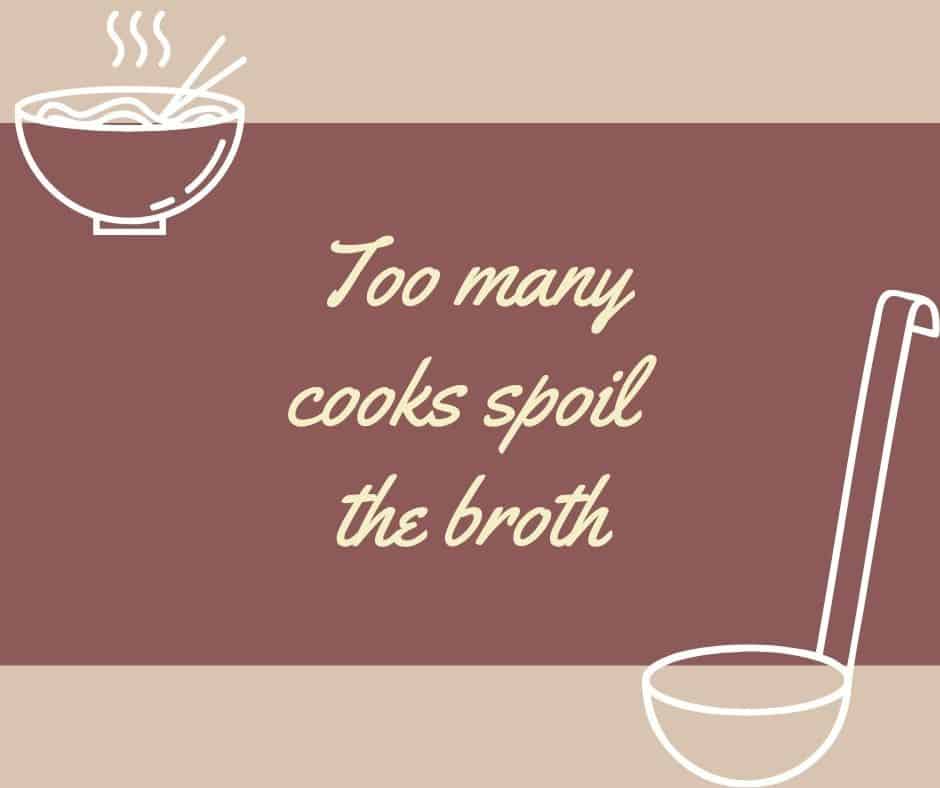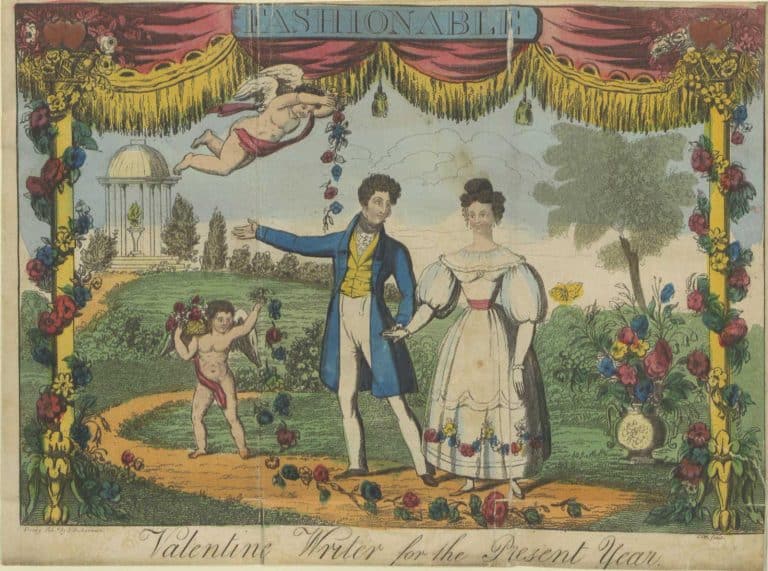How you can use old adages to unlock the power of cultural wisdom

The early bird catches the worm.
The next time you hear one of those pithy old adages, pause to savor the wisdom that is passed from generation to generation. These old expressions hold a special power that helps us communicate in ways that are effective, inspirational, and instructional.
Table of Contents
By Teresa Trumbly Lamsam, Ph.D.
Editor & Founder
The early bird catches the worm. My parents and grandparents often used old adages, and this pearl of family wisdom was oft quoted – especially during my teen years when I was prone to sleep late.
Only the smell of grandma frying bacon could get me to take the old expression seriously. In my mind, I replaced it with, “get up early to get a hot breakfast!”
For me, waking up early meant a big country breakfast from my grandma Zula. For those of you not from Oklahoma, that translates to bacon, ham, eggs, and sometimes biscuits and gravy.
My grandpa Holly worked the oil fields and would get up by 5 o’clock. Grandma always had a hot breakfast ready for him. I learned to hitch my wagon to his schedule. Otherwise, it was cereal for me!
The wise shall understand: Old adages teach us how to live
Proverbs – little bits of wisdom – are timeless and can be found wherever you go. If you put your nose to the grindstone, you could probably think of the old adages used in your family.
Why are proverbs so popular with parents, bosses, friends, and teachers? The old adages tell us how to think and reason. Succinctly and metaphorically.
Researchers Anne Witte and Peter Daly, who study the use of proverbs for teaching “fair play,” refer to the old adages as legacies of ancient wisdom that can lead the listener to define a problem, nudge someone toward a solution, and help in judging social situations.
Parables also function as indirect communication. Most people eschew direct communication to deliver criticisms, warnings, and sarcasm. Old adages provide good “cover” in these situations, for example: People who live in glass houses should not throw stones.
In cases where opinions and advice may not be appreciated, the late folklorist Joyce Bynum wrote that proverbs provide a ready-made answer, saving us from stumbling around for a comment or an awkward course of action.
Then, there is the dark side. How would you feel if the old expressions you grew up with were manipulated by evil people for their own use. Throughout history, leaders of authoritarian regimes have adapted cultural wisdom or in some cases, governments have literally purged cultural proverbs that didn’t fit with new state ideology.
Ignorance isn’t always bliss.

Old adages: Guardians of cultural wisdom
Old sayings about life reflect who we are as families and nations. They are the everyday protectors of our cultural wisdom and our ever present guide to common sense.
Nigerian poet Dowell Ighohwo Oba says that proverbs are a powerful and effective force in our societies.
“Whenever there is doubt about an accepted pattern of behavior, whenever there is doubt about a stipulated line of action, whenever traditional norms are threatened, there are always proverbs … to vouch, illuminate and buttress the wisdom of the traditional code of conduct,” he writes.
“The value … lies not only in the way they strengthen tradition, but in the variety of ways in which they may and do contribute to the life continuity of the given society, and the individual who lives in it.”
Continue reading below …
The genius, wit, and the spirit of a nation are discovered by their proverbs.

Don’t hold your breath: The problem of defining old adages
Trying to pin down a definition of “proverb” should be easy as pie. But it’s not. Talk about opening a can of worms! Even the academics who study the old expressions don’t agree.
“One of the great paradoxes of the proverb is that it is generally understood to epitomize simplicity and common sense, but it turns out to be both complex and hard to define,” according to the editors of What Goes Around Comes Around: The Circulation of Proverbs in Contemporary Life.
What’s more, a proverb goes by many names: maxim, adage, idiom, aphorism – just to name a few. Ah, well, a rose by any other name would smell as sweet.
Let’s just agree that “you say tomato, I say tomahto” and certainly not call the whole thing off!
Those who study proverbs are called paroemiologists. They define proverbs as brief, metaphorical phrases. Old adages function as common knowledge, used as “currency” in social situations. Most are 10 to 12 words long. Many scholars add that an old expression must also be pithy.
Steven Shapin, a famous Harvard professor known for his work in the History of Science, writes that for a proverb to be genuine, it must have the ability to “distill experience, to say something worthwhile and important in an unusually economical way.”
Shapin also has something to say to the many Ivory Tower academics who downplay the value of old adages as mechanisms of sound reasoning. For hundreds of years, scientists have defined proverbs as the currency of the uneducated, not learned folks.
In his article defending common sense thinking, Shapin says, on the contrary, understanding common sense old expressions “can throw light on more prestigious bodies of knowledge” like science. “Science versus ‘common sense’ doesn’t work,” he writes. Instead, scholars should be interested in the differences and similarities among the many examples of old sayings about life.

You can run but you can’t hide: The inescapable influence of old adages
Although we often associate proverbial wisdom with our families, the power of old adages spans fields of study and professions. Proverbial wisdom shows up in our education, our workplaces, and even our counseling sessions .
Old adages – whether we give them much credence or not – are a pervasive part of our daily lives.
Psychologists have used proverbs for years as a method of testing our cognitive abilities to reveal normal or dysfunctional thinking. (Let’s just say you might want to pass that test!).
Studies in psychology have found that notions of “what is intelligent” and “what is sensible behavior” are fairly universal. Proverbs reveal how people think.
Scholars at the University of California, Santa Cruz, found that old adages tend to reflect important principles, such as cause & effect (He who lays down with dogs will rise with fleas), warnings (a house divided against itself cannot stand), and generalizations that can get us in hot water (All that glitters is not gold).
Business educators use old expressions to raise cultural awareness, promote critical thinking, teach teamwork, and improve interpersonal skills.
In a study at a Canadian university, Ernest N. Biktimirov found that famous aphorisms not only bridged a cultural gap, but the old adages helped business students understand complex financial concepts.
Story continues below …

Let’s talk parables!
Do you find yourself repeating the old adages
that were used by your parents or grandparents?
Please share in the comments below or on social media.
“Proverbs have the unique ability to capture the essence of financial concepts in a brief and memorable way,” Biktimirov writes in his report. “Hasn’t an ounce of common sense always been worth a pound of theory?”
Perhaps there has never been a time in which old adages were not used for instructing. From educational settings to homelife, people have always turned to these bits of cultural wisdom to instruct children.
Old sayings about life introduce moral standpoints (You shall not steal), promote abstract thinking, transmit culture, socialize appropriate behaviors, ethics, and values, and convey religious beliefs.
The late Anthony V. Manzo, a cognitive psychologist known for his groundbreaking work in literacy and learning, found proverbs so important that he developed methods of teaching old adages in schools.
“It strikes me as odd that my grandmother, a European peasant with only a first grade education, should have taught me more about child development and learning than I got from over 100 credit hours of graduate work in psychology and education,” he wrote.
“A portion of her power, it now occurs to me, was in the fact that she had a good deal of help in the form of many proverbs and pithy remarks which provided her with a direct line to the sum of human history. These “sayings” were part of the oral language tradition in which she raised her children and grandchildren.”
Wherever you go, there you are: Old adages around the world
Perhaps few other societies in our contemporary world still place as much importance on old adages as African countries. “In a great many areas the feeling for imagery and for expressing ideas poetically is apparent in Africans’ use of proverbs,” wrote Bynum. “In oratory, legal cases, instruction and everyday conversation, proverbs and other metaphors are used very frequently.”
Linda Stevenson, who studied the verbal arts of the Agni people on the southeastern Ivory Coast, found that old adages permeate the society at every level from governmental life to homelife. Public education reinforces the importance of proverbs.
“In schooling, prestige is bestowed not only on those who remember their lessons,” she writes, “but also on those who can invent an appropriate proverb to illustrate a virtue or dilemma.”
Growing up in Ghana, Naomi Adjei’s experience was similar. “We use parables like the church uses the Bible,” says Naomi, a church counselor in Omaha, Nebraska. “It’s part of our culture and history. Most of them came from some experience which means there is a story behind them.
“Parables in my country are what our elders use to guide and encourage us. They are part of our language, songs and poems.”
Meet Naomi
Learn more about Naomi Adjei, a Prayer and Care Associate Director at Good News Church in Omaha, Nebraska.
Read
Old adages across cultures and nations
Proverbs of the Okogko society of the Igbo people of south-eastern Nigeria as collected by M.M. Green in 1947:
- Doer of a bad deed, his eyes are on the gate (i.e. because he expects someone to come in and catch him).
- Going about with people and criticizing them is no friendship.
- When the mother-goat breaks into the yam barn her child watches her.
- If everyone runs to pick up a breadfruit only one will get it.
- One individual possesses a cock but the community possesses crow. (The crowing of the rooster benefits everyone in the community).
Proverbs of the Agni, a West African community on the southeastern Ivory Coast, as told to Linda Stevenson:
- A proverb about the disruptive nature of anger: If you get angry with the fly, you hurt yourself.
- Guilt is the subject of many of the Agni old adages, such as this one: When you hear a noise in a hole, you know it will eventually come out.
- The rich may also experience trouble: The chicken perspires, but you can’t see it because of all the feathers.
The following 19th century old sayings about life are excerpted from an “old notebook in the possession of an aged lady in Los Angeles, herself descended from one of southern California’s most illustrious Spanish families” and presented by the Western States Folklore Society.
- Dios aprieta pero no ahorca. God grips but does not choke.
- Nunca falta un roto para un descosido. Never a rip without a tear.
- En todas partes se cuecen habas. In all places beans are cooked.
- Poco a poco se anda lejos. Little by little one walks.
James A. Matisoff, Professor Emeritus of Linguistics at University of California, Berkeley, is a leading authority on Southeast Asian linguistics. His research presents old adages of the Lahu, an ethnic group scattered across Southeast Asia. Note the universality of the following old expressions:
- If you can’t part with the worm, you can’t hook a fish.
- When the dog has reached your legs, it’s too late to look for a stick.
- To spoiled meat and rotten fish, it is vain to add chilis and salt.
- An elephant can’t feel a flea’s bite; the water of a lake can’t be scooped out.
Diving deeper into old adages: The master of proverbs
He’s been called the greatest paremiologist of all time. Those who study the scholarship of proverbs were all taught by this master in one way or another.
Over the 50 years of his career as a scholar of German and folklore, Wolfgang Mieder collected nearly 9,000 volumes of books and dissertations on proverbs. Mieder himself authored 246 books and 569 articles on proverbs.
Just over a year ago, that collection was in danger. No one wanted it. It was too massive of a collection.
But the University of Vermont, where Mider was a professor, rushed in to save the collection. The Wolgang Mieder International Proverb Library is now located in a renovated section of the university library.
As they say, all good things must come to an end. But let’s not let a good thing go to waste! We can keep talking here, in the comments below, or on social media.
We love talking with our Americana Steeples community. Looking forward to hearing about your family’s old adages!

Teresa Trumbly Lamsam, Ph.D., is an accomplished Social Scientist and Journalist. Passionate about establishing credibility in the digital realm, she champions transparent and trustworthy online content. She is dedicated to producing content that sparks curiosity and nourishes the heart and mind.









Extremely interesting. Something I will read many times learning something different every time or more accurately remembering something new (it’s an age thing). Never would have thought there was so much literature and study on the topic.
Levi, there is a lot here to absorb. That’s for sure. Thanks for stopping by to read!
I never realized until reading this how adages are part of our daily lives. Some of these have heard my great grandmother say.
Ashley, I was in the same boat, in terms of not giving the old sayings a lot of thought. But, recently, I noticed that I was missing them. Just not hearing them as much … and that got me thinking! Thus, this story, lol.
They are truly a part of our day to day lives. It is interesting how we hear and pass them along.
This is so interesting and so true. Adages are part of our daily life lessons. Some I have thought about more than others. I love how all of these have a story behind each. Thanks for getting me thinking!
I’m so glad you enjoyed it. I’m a life-long learner, and I think I write to keep learning!
I taught many of these to my adult ESL class and we had such a good time with it. Many times they couldn’t get past the literal interpretation. But other times they had similar adages and proverbs in their own countries/languages. And one of my favorite parts was when they would share theirs–they were just as strange and crazy to me as mine were to them!
Thanks for sharing that story! It seems to be just as the research says – old adages provide a cross-cultural learning platform!
I never knew there was so many studies on the subject, thats really interesting 🙂
Neither did I! But I tend to go down rabbit holes, lol, because it’s so fun to learn!
Thank you for sharing this Teresa. I agree that old adages tell us how to think and reason. Adages are very helpful
I appreciate your kind feedback! I love learning, and I certainly learned a lot following up on this idea!
This is so interesting, I’ve learned a lot from this topic and I am sure that new generation or so called ” millennial ” will definitely learn from this.
Gervin — I’m glad to hear that you think others will learn! It’s certainly more fun to learn in community! I’m uplifted to know that others enjoyed the article.
this post is such a huge food for thought ! and i always look up to people who are lder than me as i believe that they are so much wiser and they have been through a lot more
Pati, me too! I like the time I grew up in because respecting elders was still very much the thing to do. I hope it is still the case.
Your post made me recollect my childhood days. My granny used to say so many things but I used to ignore all of them. When I grew up and analyzed those, some were really logical and helpful. They keep us disciplined in life. I loved the topic of yours, its really practical and unique.
Hi Kuntala – I love your very thoughtful reply! It was so genuine! Isn’t it wonderful to connect over important memories!
A topic you chose that touched my heart and chords. I remember initially when I was very young my grandmom used to tell us different proverbs and we grew up hearing those and do realize that they meant so much. It still remains so relevant. After she passed away my father took over the mantle. Thanks for the nostalgic few moments
It was a trip down memory lane for me as well. I felt a closeness to my grandparents as I wrote this story! I’m glad I could help make that happen for someone else!
this was such a very interesting read. i loved learning more about Asian adages like the one about the dog.
I’m so glad! I had a lot of fun looking for old adages from other cultures!
You know I’ve said this a million times, but I can’t believe there is a name for people that specifically study proverbs! I have loved every ounce of this story about the power of old adages- especially how creative you are!
This is so wonderful to hear … and fun! Thank you so much!
This is so interesting to read, and learn. I believe many people could learn a lot from this when you share it widely
This is very interesting post and great to consider proverbs in our everyday lives. Thank you for sharing!
This is very timely! Fantastic! I do agree that life reflects who we are as families and nations. I hope we can have teamwork during this pandemic.
Me too, Emman! I share your hope!
I believe that quotes are passed from generation to generation and they have a great life lessons
For me, adages are always interesting to read and to understand its in-depth meanings. These old sayings make us wise.
Quite an interesting topic and something I agree with. I believe adages certainly help us understand and learn more.
I remember my great grandmother saying to me as a teen, “you will never see it on a galloping horse!” What she meant is that our little “Imperfections”
won’t be noticed by anyone else but you! That is something I have carried with me… don’t sweat the small stuff! ? Thank you Teresa!
That’s a new one for me, and I love it! I can understand why that one stuck with you. It carries such an important lesson in our outlook for life!